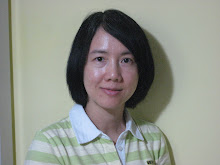| By Esther Tan | ||
 | | |
WHEN Mr Tong Mun Cheong woke up following an epileptic seizure on Oct 1, he found himself handcuffed and inside a police lock-up. The last thing he remembered was waiting for a taxi in Sungei Road earlier that evening. Mr Tong, 34, said a police officer told him he had been taken in for drunken behaviour and refused to let him call his mother for his seizure medication.
'I told them I had fits but (the police) didn't believe me. I asked them to take me to the hospital, but they said 'no',' said Mr Tong, who has been suffering from epilepsy since 1996. After three hours in the lock-up without food, water or medication, Mr Tong suffered another attack.
His mother, Madam Er Swee Chew, told The Straits Times that the officers still would not let her son go. 'They told me he was having an attack but there were ambulance staff attending to him,' said the 67-year-old housewife. She had his medication, but the officers would not give it to him, she said. They also refused to talk to staff at the Singapore General Hospital who could verify her son was epileptic, she claimed. It was only after Mr Tong's older brother spoke to them that he was finally released. 'Mun Cheong's brother told them that if they didn't release him, they had to be responsible for anything that may happen to him,' said Madam Er. It was past midnight by then.
It is not the first time that epilepsy patients, like Mr Tong, have been arrested by the police on suspicion of unruly behaviour or drunkenness. Mr Goh Keng Hwee, executive director of the charitable organisation Epilepsy Care Group, said his group has encountered at least five such cases in the last three years. They were released when the police confirmed with hospitals and family members that they were epileptic.
Her son had been arrested before, in 1999, said Madam Er. Then, officers allowed her to see him, she said. They also took him to a hospital.
Epilepsy is a neurological condition in which recurrent, unprovoked seizures take place in sufferers, said Dr Ho King Hee, 45, a consultant neurologist. Mr Goh estimates that 16,000 people here have epilepsy.
Another patient, who declined to be named, told The Straits Times he was arrested by the police last month for brandishing a knife during a quarrel with his 15-year-old son. He has no memory of the incident, as he was suffering a seizure.
While the behaviour of some people having a seizure may appear to be bizarre, drunken or disruptive, they are rarely violent, said Mr Goh. Those around them should let the seizure pass and make sure the person does not hurt himself. If it lasts more than five minutes, they should call an ambulance.
Members of the care group are issued a card containing information such as their addresses, the kind of medication taken and their doctors' names. Mr Tong had a card, but was not carrying it when he was arrested.
In a letter to The Straits Times Forum page on Monday, Mr Goh noted that there was a need for the police to recognise the signs of a seizure. He said the care group had approached the Singapore Police Force in 2004 with an offer to conduct training classes for officers and recruits but it was not taken up. A police spokesman told The Straits Times yesterday that they were looking into the case. He maintained that police officers are trained to identify and handle persons suffering from various medical conditions, including epilepsy.
When contacted, the mayor of the North West District, Dr Teo Ho Pin, said it would be good for police officers to recognise the signs and symptoms of epilepsy. He said that as officers would not want to be responsible for administering medication, the best thing to do would be to send the person in question to hospital.
Source : straits times - singapore








No comments:
Post a Comment
Please write your comments here